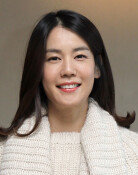Gov¡¯t launches across-the-board anti-corruption drive
Gov¡¯t launches across-the-board anti-corruption drive
Posted November. 12, 2000 20:06,
In connection with the recent string of scandals involving members of the ruling Millennium Democratic Party who served as Chong Wa Dae aides and Financial Supervisory Service (FSS) members, a high ranking official of the ruling MDP revealed Sunday that the party would enforce stricter measures to tighten discipline and prevent corruption in various government departments and agencies.
The official further stated that the tighter control would begin with a thorough self-assessment of supervisory agencies such as the FSS, the Prosecutor's Office, the Police Agency, the Board of Audit and Inspection, the National Intelligence Agency and the National Tax Service. This will be followed by a crackdown on all irregularities and moral laxity in public offices.
Following on such inspections and crackdowns, the ruling MDP has decided to adopt a measure to indict all found guilty of corruption and moral laxity regardless of their position and degree of influence in the party. In addition, the ruling MDP has pledged the speedy adoption in the National Assembly of revisions to the Civil Servant Ethical Laws, Anti-corruption Laws, and Anti-Money Laundering Laws.
In anticipation of the sweeping anti-corruption campaign, Chong Wa Dae has already commenced an investigation into the personal asset investments of all Chong Wa Dae aides in such stock options as privately managed funds.
The ruling MDP has also commenced an investigation into all its mid- and lower-level officials for possible corruption through personal dealings outside the party.
The announcement of the sweeping anti-corruption drive was preceded by a luncheon meeting of MDP chief executives, including MDP Chairman Suh Young-Hoon and Chief Aide to the President Han Kwang-Ok. At the meeting, the participants agreed on the necessity of anti-corruption reform in all segments of Korean society, including officialdom.
Chairman Suh noted that dysfunctional administrative supervisory agencies have led to difficulties in the medical, financial and business reform drives. He reiterated that the purpose of the current anti-corruption drive was not to simply stamp out corruption but to become a long-term effort resulting in an efficient government system.
Chairman Suh also added that an assessment of personnel in various positions would be made and a reshuffle may take place to transfer officials to posts where they can be the most efficient.
Choi Young-Mook ymook@donga.com




![“잠만 자면 입이 바싹바싹”…잠들기 전에 이것 체크해야 [알쓸톡]](https://dimg.donga.com/c/138/175/90/1/wps/NEWS/IMAGE/2026/02/23/133404749.3.jpg)


